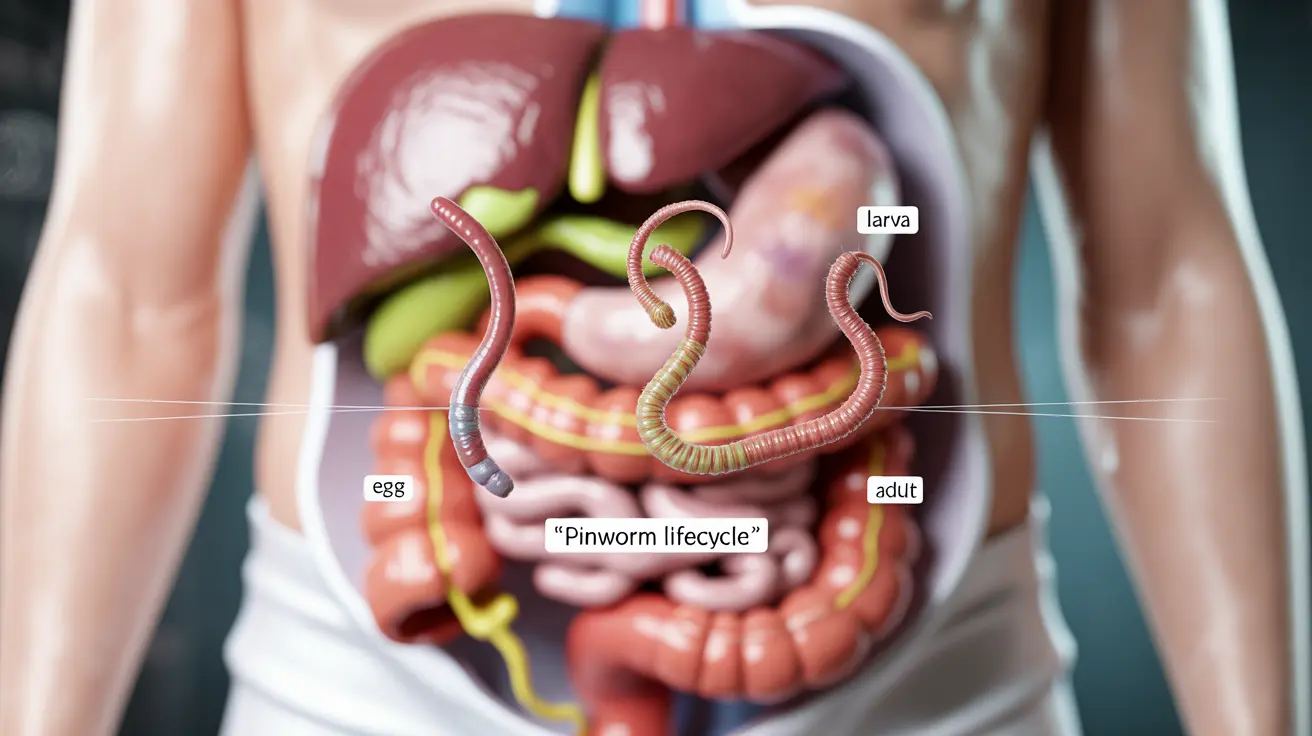Pinworm infections, while often associated with children, can significantly affect adults as well. These tiny parasitic worms can cause considerable discomfort and disruption to daily life, making it essential to recognize the symptoms and seek appropriate treatment promptly.
Understanding how pinworm infections manifest in adults is crucial for proper diagnosis and effective treatment. This comprehensive guide will explore the key symptoms, treatment options, and prevention strategies specifically relevant to adult cases.
Common Symptoms of Pinworm Infections in Adults
Adult pinworm infections can present with several distinctive symptoms that typically become more noticeable during nighttime hours. The most common indicators include:
- Intense anal itching, particularly at night
- Sleep disturbances due to discomfort
- Restlessness and irritability
- Visible small, white, thread-like worms around the anal area
- General fatigue due to sleep disruption
Understanding Nighttime Symptoms
Pinworms are most active during the night, which explains why symptoms often intensify during evening hours. Female worms typically emerge from the anal area to lay eggs, causing increased irritation and itching sensations that can significantly disrupt sleep patterns.
Additional Health Impact and Complications
While anal itching is the primary symptom, pinworm infections can lead to various other health issues in adults:
- Abdominal discomfort or pain
- Loss of appetite
- Weight loss in severe cases
- Vaginal irritation in females
- Secondary bacterial infections from scratching
Effective Treatment Approaches
Treatment for adult pinworm infections typically involves a multi-faceted approach:
Medication Options
Healthcare providers usually prescribe antiparasitic medications such as:
- Prescription medications like mebendazole or albendazole
- Over-the-counter pyrantel pamoate
- Often requiring two doses, spaced two weeks apart
Supporting Treatment Measures
Complementary steps to ensure treatment success include:
- Washing bedding and clothing in hot water
- Regular showering, especially in the morning
- Keeping fingernails short and clean
- Avoiding scratching the affected area
Prevention and Household Management
Preventing reinfection and protecting household members requires diligent hygiene practices:
- Frequent hand washing, especially before meals and after using the bathroom
- Regular cleaning of bathroom surfaces
- Avoiding nail-biting and finger-sucking
- Wearing clean, close-fitting underwear at night
- Regularly vacuuming living spaces
Frequently Asked Questions
What are the most common symptoms of pinworms in adults?
The most common symptoms include intense anal itching (especially at night), disturbed sleep, visible white thread-like worms around the anal area, and potential abdominal discomfort. Some adults may also experience fatigue due to sleep disruption.
How do pinworms cause anal itching and sleep problems at night?
Female pinworms emerge from the anal area during the night to lay eggs, causing irritation and intense itching. This nocturnal activity often leads to sleep disturbances and discomfort that can significantly impact rest quality.
What treatments are effective for getting rid of pinworms in adults?
Effective treatments include prescription medications like mebendazole or albendazole, or over-the-counter pyrantel pamoate. Treatment typically requires two doses taken two weeks apart, combined with strict hygiene measures.
How can I prevent pinworm reinfection and spread in my household?
Prevention involves thorough hand washing, regular cleaning of bedding and clothing in hot water, keeping fingernails short, wearing clean underwear at night, and maintaining clean bathroom surfaces. All household members should be treated simultaneously to prevent reinfection.
Can pinworm infections cause complications beyond itching, such as abdominal pain or vaginal irritation?
Yes, pinworm infections can cause additional complications including abdominal pain, vaginal irritation in females, loss of appetite, and potential secondary bacterial infections from scratching. In severe cases, weight loss may occur.




